Chickens need to be tested for worms regularly. If there is a build up of worms in their digestive system that can cause health problems. Keeping chickens in a fixed area as so many of us do, where they are grazing the same piece of ground continually is the worst case scenario as they will be contaminating the ground and picking up worm eggs as they are feeding. Infected hens shed thousands of eggs in their faeces onto the ground and so, the problem gets worse.
How can you tell if they need worming? By using a Worm Count Kit! Using a kit means you’re not worming chickens unnecessarily.
Wormers
I use a product containing Flubendazole when necessary to worm my chickens. This is a proven chemical wormer that kill all common worms and their eggs in the chicken and is the only product licensed for use in chickens feed. In between these times, I use Verm-X which has approval for use in Organic systems – now this is a herbal product which works in a different way – you will need to feed this to your hens every month for it to work. The really great thing about Verm-X is that being herbal, it contains many ingredients that are good for your birds so it can improve their overall health.
Good Husbandry
Practising good husbandry techniques is key, in between worming chickens. We try to rotate our birds grazing area every month so that they get some fresh grass but so the ground also gets to rest (this is one of the major principles in Organic farming) and we keep the grass mowed short which allows the ultra-violet light from the sun to reach droppings and kill off worm eggs.
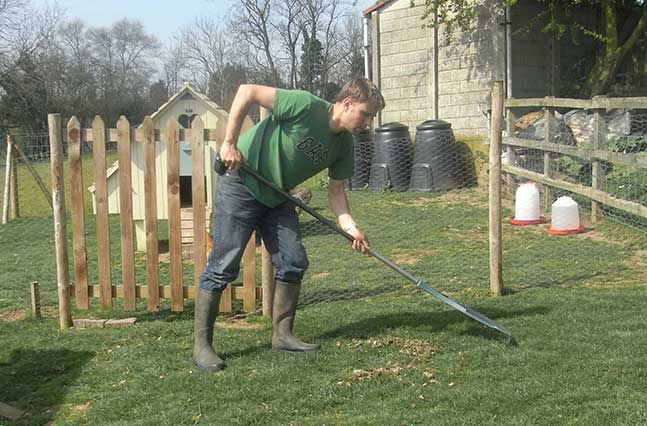
Cleaning a chicken run by raking droppings during dry weather.
General cleanliness is of course important so if your chickens scratch around in their own droppings, you should be thinking about cleaning them up, rather than hitting them with a regular dose of chemicals.
Bad Infestations
If you have a bad infestation of worms, you do need to keep in mind that eggs deposited on the ground will re-infect your birds and it is necessary to repeat the treatment before the eggs hatch and grow into adult worms to lay more eggs. This takes 3 weeks for most common worms carried by chickens so I would re-treat after 3 weeks if I suspect a particularly bad case of worms.
Where external parasites are found on the bird (such as Northern fowl mite or lice) a systemic wormer / pour on product containing Ivermectin is useful. This kills a more limited range of worms. Victoria Roberts Diseases’s of Free Range Poultry says it excludes tapeworm and fluke, but these are less common in chickens. It isn’t licence for use on poultry so you would need to go to your vet for their advice.
Please remember this should not replace the advice of a qualified veterinarian who can advise you about worming.
Do you have any advice on worming? Please leave me a comment below.

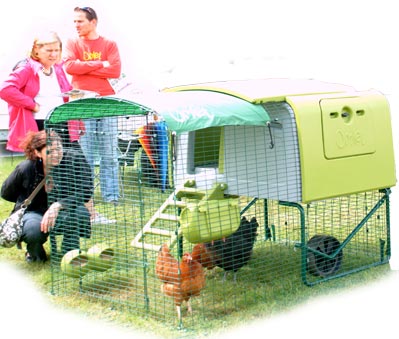

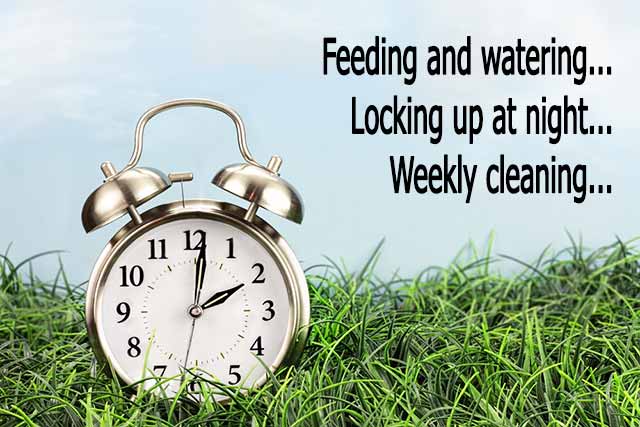
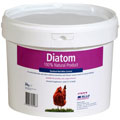
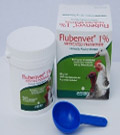
Can you tell me when worming are you still able to eat the eggs of the chickens or should you throw them out for a certain period of time…… thank you
Flubenvet doesn’t have an egg withdrawal period so you can still eat the eggs.
I have a chicken who seemed to have sour crop – took her to a vet and he seemed to think the same, nasty smell from beak, swollen water balloon feeling crop. This has gone on now for over 2 weeks, I decided to induce vomiting again today, and when I inspected it ready to clean up, I saw a couple of little ‘white thread worms’, which I am guessing are Hairworms. I have now seperated her again from the flock, and given 1/2 teaspoon of flubenvet (I have not used this before since getting them in April 2012), and have also begun treating the other 6. Do you think it was worms rather than sour crop? Or can both illness’ compliment eachother? I’ve been searching and ringing round people who can give me a confident diagnosis and course of treatment, and the vet said nothing about possible worm infestation. As you can tell I am a very novice chicken keeper, but want them to be happy and healthy. Is there any advice you could give me? Many thanks
In the trachea (wind pipe) you can get gapeworm although this is fairly uncommon. They are Y shaped when mature.
Other worms are in the intestines so they are more likely to be worms the chicken has eaten I would say.
Hi. I have some 9 week old chicks and all of a sudden they have become very listless, slightly penguin like in appearance and now I have found blood in their droppings, could this be worms or is it something more sinister?
This will be Coccidiosis. It is quite common in Chicks. Take a look at this information on Coccidiosis for further information.
I wormed my chickens with marrages pellets containing Flubenvet, and within a week one of my girls has become very lifeless just coming out of the run for some water I havnt seen her feed. I also noticed today worms again in their poo when I cleaned out the hut, could she be ill as she has worms. I am not sure if I need to take her to the vet as I have only been keeping chickens for 6 months
If you take a dropping and put it into a jam jar of water and shake, you should be able to see worms if you can see them in the run.
If there are still worms, you need to worm them again. The problem is if their is a high infection pressure (well used ground where there are worms and eggs being picked up) then they get re-infected and within a couple of weeks, they have worms again. If this is the case, you will need to keep worming every 3 weeks or so before the worms become old enough to lay more eggs. After 2 or 3 treatments, the worms should have decreased.
Ideally, worm them and put them onto fresh pasture.
Worming chickens does strip the lining of the gut so only worm if you suspect they are re-infected and try to keep them healthy in between with a good diet. ACV in the water is good since it creates an unpleasant environment in the gut for worms.
Hi, Can you help, our girls have worms, (new8 ex batts) we think they are round worms. We used Verm-x, and have done with all the other chickens we’ve had. We’ve followed the instructions, however they are still passing them. My question is where can we get Flubenvet? We have tried everywhere we can think of but it appears out of stock.
Many thanks Trudie
Yes, you are right to use Flubenvet.
There seems to have been a shortage in supply of Flubenvet recently – it seems to be back in stock with Medic Animal now though at £13.20.
See my page on Flubenvet for some links to other suppliers.